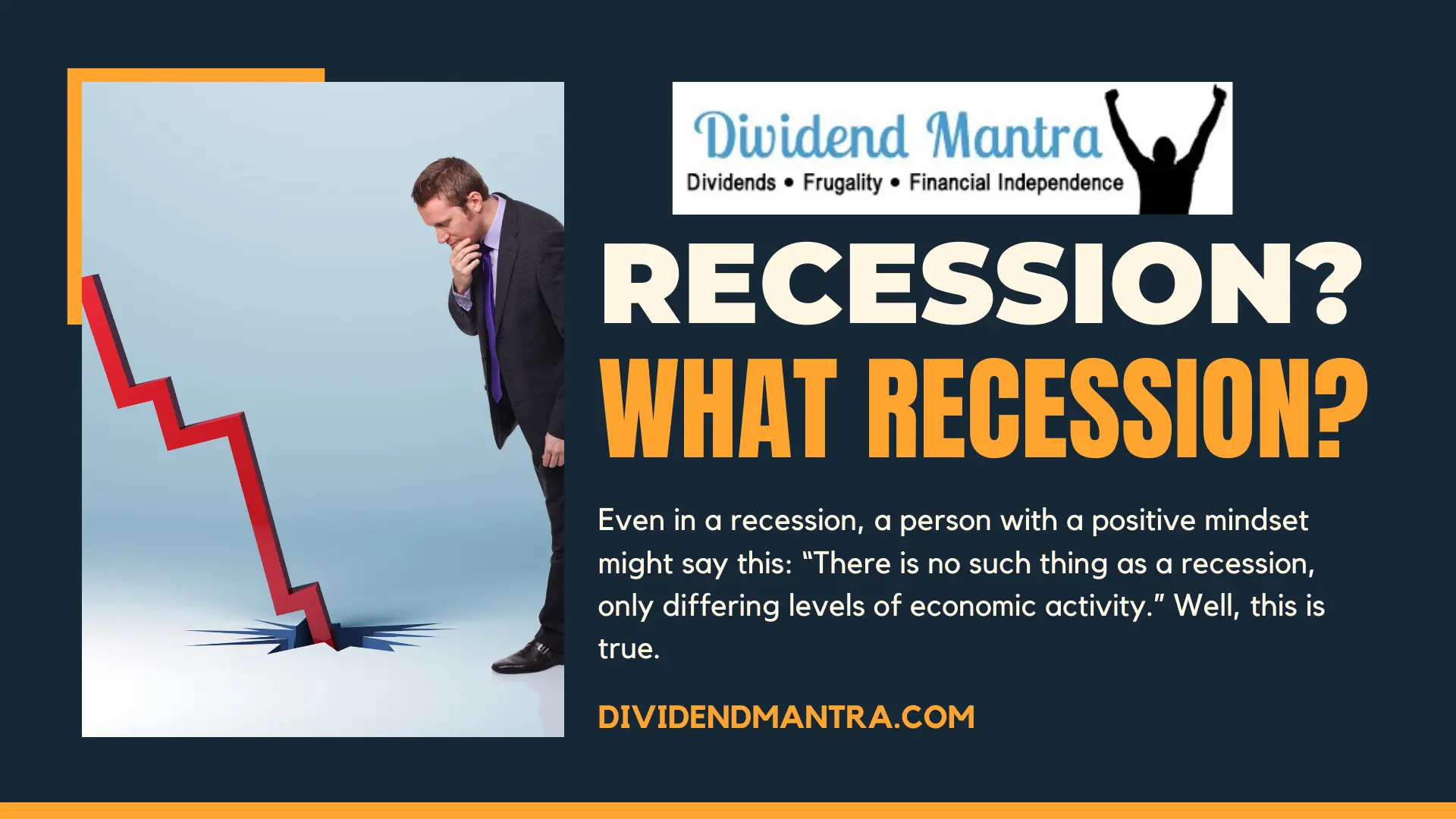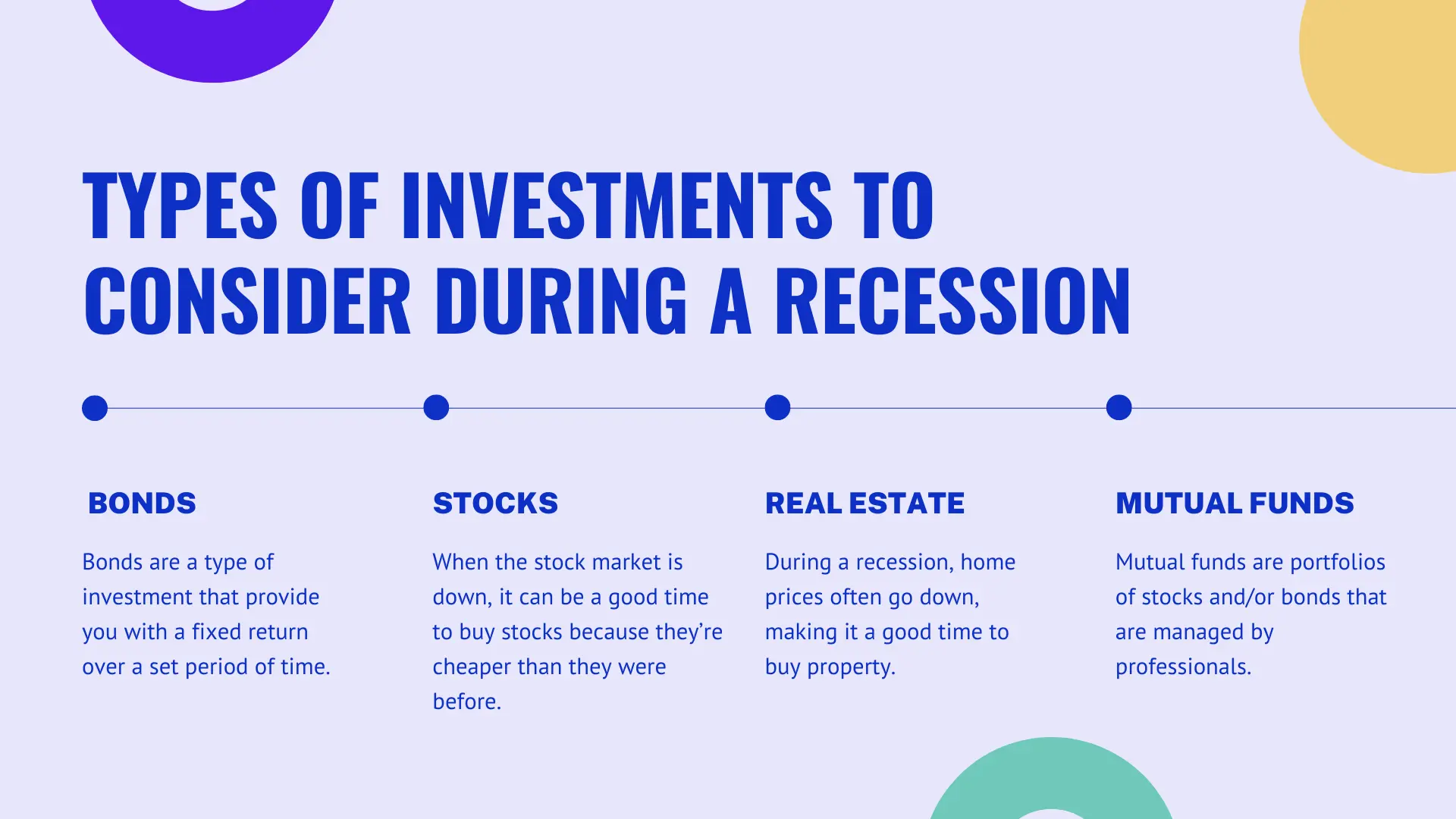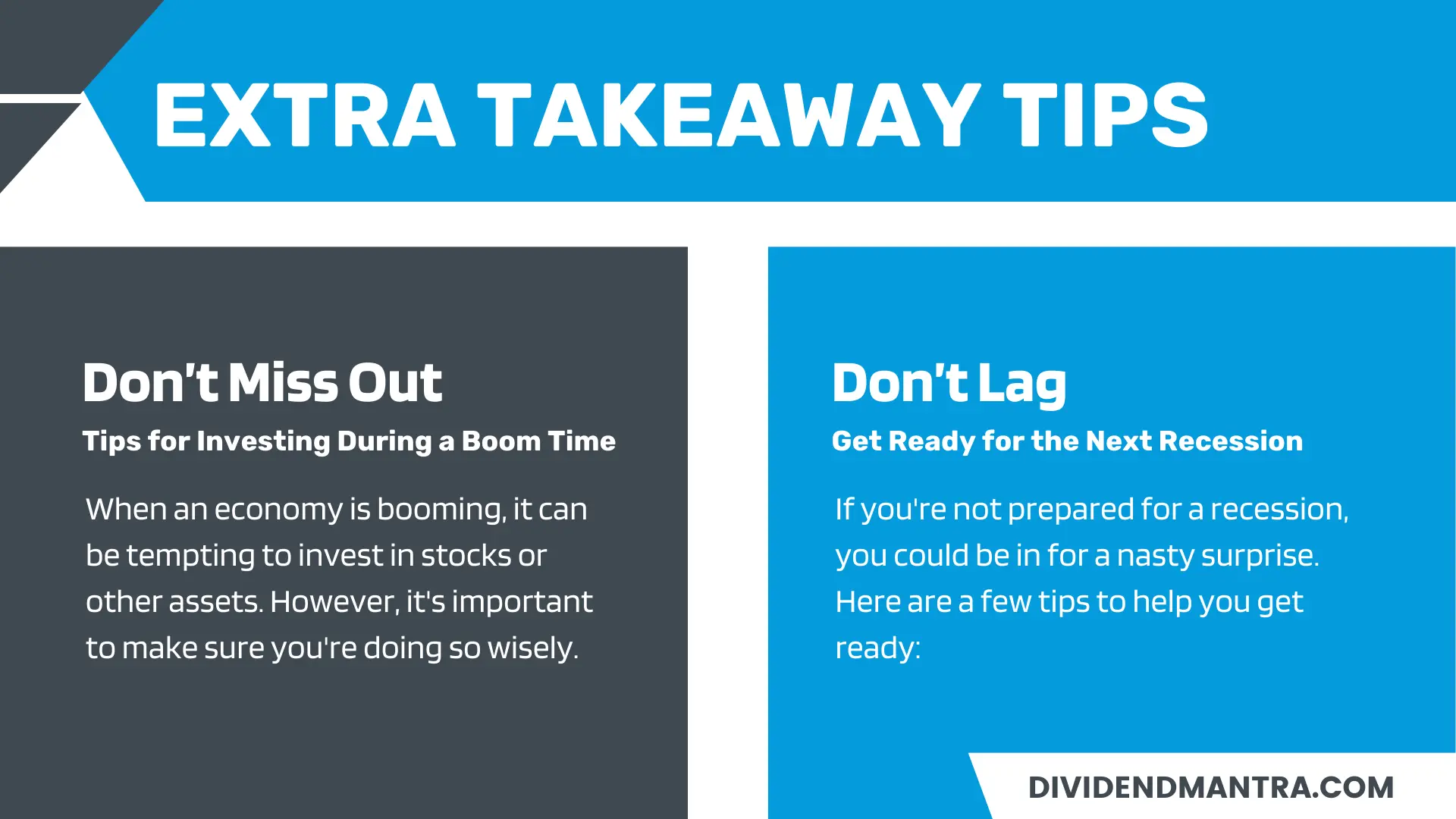Recession? What Recession? Investing Tips for Future Boom Times
Even in a recession, a person with a positive mindset might say this: “There is no such thing as a recession, only differing levels of economic activity.” Well, this is true.
The current economic environment is anything but recessionary, with low unemployment and an overall increase in consumer spending. However, there are still plenty of opportunities for investment during this time period, so read on for tips to help you prosper in any economy.
Types of Investments To Consider During a Recession
When the economy is in a recession, it can be difficult to know where to invest your money. You may be tempted to put all your money in a savings account, but there are other options that can provide you with better returns. Here are four types of investments to consider during a recession:
1. Bonds: Bonds are a type of investment that provide you with a fixed return over a set period of time. They are considered low-risk investments, and they can be a good option for people who want to preserve their capital.
2. Stocks: When the stock market is down, it can be a good time to buy stocks because they’re cheaper than they were before. However, it’s important to do your research and make sure you’re investing in companies that are likely to survive the recession.
3. Real Estate: Another type of investment to consider is real estate. During a recession, home prices often go down, making it a good time to buy property. However, you need to be careful not to overspend on your purchase and make sure you can afford the mortgage payments if they increase in the future.
4. Mutual Funds: Mutual funds are portfolios of stocks and/or bonds that are managed by professionals. The fund manager tries to get higher returns than the general stock market by buying low-risk securities and selling them at higher prices and, depending on the manager, often succeeds in doing so.
What To Watch Out for When Investing
When you are looking to invest your money, it is important to be aware of the risks involved in order to make the best decision for your financial future. If the economy is in a recession and you’re thinking about investing your money, that’s a good idea, but there are some things you need to watch out for.
First, don’t invest in anything that sounds too good to be true. If an investment sounds too good to be true, it probably is.
Second, do your research before investing. Make sure you know what you’re investing in and what the risks are.
Third, don’t invest all your money at once. Invest gradually so if the investment turns out to be a bad one, you won’t lose all your money.
Fourth, keep an eye on the stock market. When the stock market is in a dip, it’s a good time to invest; when the stock market is at its highest, it’s not such a good time to invest.
Hedge Your Bets: Invest in a Varied Portfolio
A diversified investment portfolio is essential in times of recession. By spreading your money out among different types of investments, you can minimize your risk if one particular investment falls in value. For example, if you invest in stocks and the stock market crashes, you could lose a lot of money. But if you have also invested in bonds, real estate, and commodities, your losses will be minimized.
It’s important to remember that no investment is guaranteed to make money. However, by investing in a variety of assets, you increase your chances of making a profit no matter what the economy is doing. And if one investment does poorly, you can always rely on the others to make up for the loss.
Prepare for the Future: Buy Low, Sell High
There’s no getting around it: one of the smartest things you can do is buy low and sell high. In a recession, it means buying goods and services when they are on sale and selling them when the price is higher. For example, waiting for the next Black Friday to buy a new television or laptop and then selling it at a later time. It can also mean investing in stocks or other securities when they are cheap and selling them when the price goes up.
Essentially, as we have discussed, when the stock market is down, that’s the time to buy stocks. When the stock market is up, that’s the time to sell. The same goes for other investments, like real estate and commodities. When prices are low, invest; when prices are high, sell.
It may seem like common sense, but it’s not always easy to follow. In a recession, it can be tough to resist the temptation to panic and sell your investments at a loss. But if you can hold on to your investments until prices go back up, you’ll be glad you did.
Keep an Eye on the Markets
There is no question that the markets are important. They are a key factor in the overall economy, and they can have a significant impact on our day-to-day lives. It is therefore important to keep an eye on the markets at all times, so that we can understand what is happening and prepare for whatever might be coming our way.
Recently, there has been a lot of talk about a possible recession. Some economists are predicting that it will happen in the near future, while others believe that it is already underway. No one knows for sure what is going to happen, but it is important to be aware of the possibility and to take steps to protect ourselves if necessary.
One thing you can do is make sure you have a solid financial plan in place. If you’re prepared for a recession, then you’ll be less likely to panic if it does happen.
There are several key indicators when it comes to the health of the markets. The most obvious is the unemployment rate and GDP growth.
Invest Early, Invest Often
It is often said that the best time to invest is early, and the best way to invest is often. While there are no guarantees in life, investing as early as possible gives your money more time to grow. Additionally, by investing often, you take advantage of compound interest, which can result in significantly larger earnings down the road.
During good times and bad, it’s important to remember that one of the smartest things you can do for your future is to invest in yourself. Savings accounts offer very low rates of return these days, so if you want to see your money grow, you need to think outside the box. Investing in stocks or mutual funds may be a good option for you – especially if you start early and invest often.
Take Advantage of Dollar Cost Averaging
Dollar-cost averaging (DCA) is a technique of investing a fixed sum of cash into a security or securities at fixed intervals. By buying these securities over time, the buyer reduces the effects that sporadic changes, unrelated to the underlying security, might have on the price. DCA also allows an investor to purchase more shares when prices are low and fewer shares when prices are high. The goal of dollar-cost averaging is to reduce risk and volatility while maximizing returns.
Individuals can employ dollar-cost averaging in both bull and bear markets. When stock prices are high, dollar-cost averaging will lead to lower average costs per share than if the investment had been made all at once. Conversely, when stock prices are low, dollar-cost averaging will lead to a higher average cost per share than if the investment had been made all at once.
Extra Takeaway Tips
a. Don’t Miss Out: Tips for Investing During a Boom Time
When an economy is booming, it can be tempting to invest in stocks or other assets. However, it’s important to make sure you’re doing so wisely. Here are a few tips for investing during a boom time:
1. Don’t overspend: It can be easy to get caught up in the excitement of a booming economy and spend more than you can afford. But remember that economic booms don’t last forever, and you don’t want to end up in debt when the bubble bursts.
2. Research your investments carefully: It’s also important to do your research before investing in any stocks or other assets. Make sure you know what you’re getting into, and be prepared for potential losses as well as gains.
3. Stay diversified: This means that you should make sure you’re investing in at least a few different areas. A diversified portfolio is less likely to have a major downturn, and can help protect you from large losses.
4. Watch your margin requirements: You can lose a lot of money very quickly if you try to buy too many stocks with your credit cards. Especially in the beginning, it’s better to keep your investment portfolio small and diversified, because it will be much easier to manage.
b. Don’t Lag: Get Ready for the Next Recession
If you’re not prepared for a recession, you could be in for a nasty surprise. Here are a few tips to help you get ready: (Also checkout, how to use recession as your advantage)
- Make sure you have an emergency fund saved up. You should have at least 3-6 months’ worth of expenses saved up in case you lose your job or experience other financial difficulties.
- Cut back on spending and save as much as possible. Try to live within your means and avoid taking on too much debt.
- Invest in yourself by taking courses or learning new skills that could help you get a job in a recession.
- Don’t hesitate to get a second job if you need to.
- Don’t buy things you don’t absolutely need. Instead, do some research and find the best deals on products that are still good quality and will last for a long time.
Conclusion
In conclusion, even in recessions, there are still plenty of opportunities for those willing to invest their time and money wisely. By following the tips provided in this article, investors can prepare themselves for future boom times, when the economy rebounds and investment opportunities abound. So don’t wait any longer: get started on your investment plan today!











